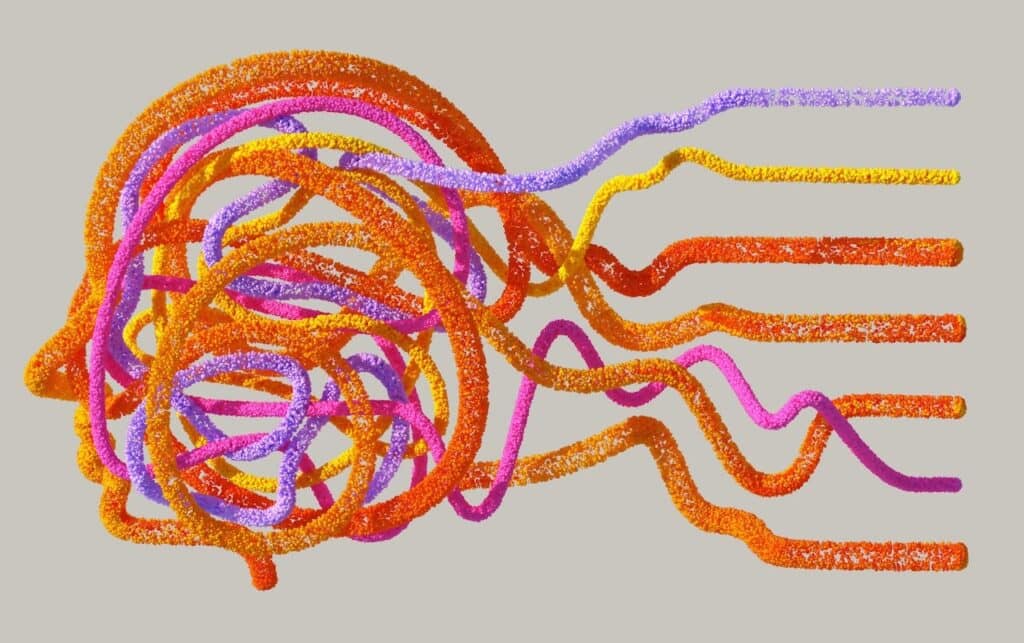Rewiring Your Brain After Addiction

If you’ve ever struggled with addiction, you know how powerfully it can take over your thoughts and decisions. And if you’re considering recovery, you may be wondering: Can my brain ever bounce back?
The short answer: Yes.
“Your brain is resilient,” says J. Craig Allen, M.D., vice president of addiction services for Hartford HealthCare and medical director of the Rushford Center. “It has a remarkable ability to adapt and adjust, and with the right support, treatment and time, return your neural pathways to normal function.”
Many people fear that addiction causes permanent brain damage. But research shows that with consistent sobriety, therapy, and healthy lifestyle habits like sleep and exercise, brain function can improve — sometimes even returning fully to baseline. Here’s how it works.
How addiction changes the brain
Addiction alters the brain in two major ways. The first one is that it hijacks your reward system, and then addictive substances exploit this system. The brain’s reward pathway releases dopamine — sometimes called the “motivation molecule” — when we do things that support survival, like eating or nurturing loved ones. That dopamine rush teaches us to repeat the behavior.
Dr. Allen explains:
All addictive substances cause a massive spike in dopamine… When that happens repeatedly, the brain starts to prioritize the substance or behavior like it’s essential for survival.
The second way addiction alters your brain is that it weakens your self-control. Your prefrontal cortex is responsible for judgment, reasoning and impulse control — “think of it as your brain’s brakes,” says Dr. Allen. During addiction, those brakes wear down, just as cravings grow stronger. That makes it harder to pause, think, and choose a different action.
The good news: Recovery starts quickly
As soon as you stop using a substance or engaging in an addictive behavior, the brain begins to repair itself. This is thanks to neuroplasticity, the brain’s natural ability to adapt and rebuild. Dr. Allen explains:
After a period of abstinence, we see a gradual rebalancing of impacted areas of the brain… Cravings and urges lessen as do drug-seeking behaviors, while brighter moods and interest and motivation in prosocial, healthy activities return.
Some improvements can be felt within days or weeks. The most noticeable changes often happen within the first 30 days, with even greater progress after a year.
Ways to support your brain’s healing
Recovery takes effort, but you can set yourself up for success by building new patterns:
- Accept addiction as a medical condition. “Science has proven that addiction is a chronic medical disease, like asthma or diabetes,” says Dr. Allen. Recognizing this truth is the first step toward treatment.
- Build connections. Isolation fuels addiction, but connection supports recovery. Explore recovery groups, peer coaching — whatever works for you.
- Change your routines. Avoid triggers tied to substance use, whether it’s certain people, places or habits. Even small changes, like choosing a different route home, can make a difference.
- Seek professional support when needed. From outpatient programs to residential treatment, expert care can provide structure and tools for long-term healing.
Let’s end with one more Dr. Allen’s quote:
With different approaches and supports, this kind of rewiring is possible for anyone… Addiction is complex, but your brain is built to recover.
Written by Tatyana Meshcheryakova. First published September 10, 2025.
Source:
“Can You Rewire Your Brain from Addiction?,” HartfordHospital.org, August 27, 2025.
Image Copyright: Google DeepMind/Pexels.




